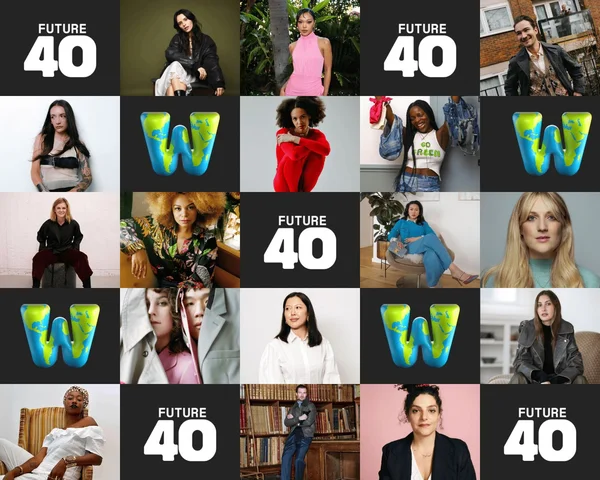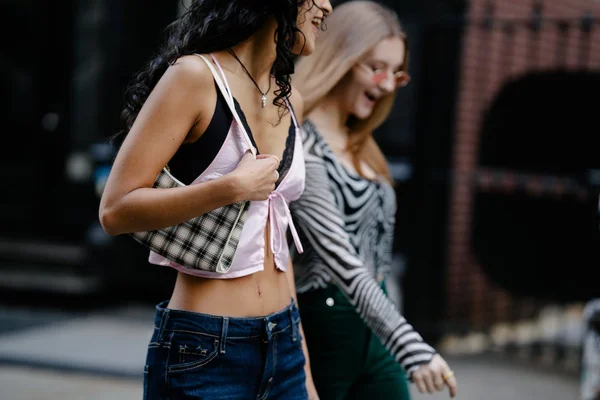Second-hand September 2023 roundup
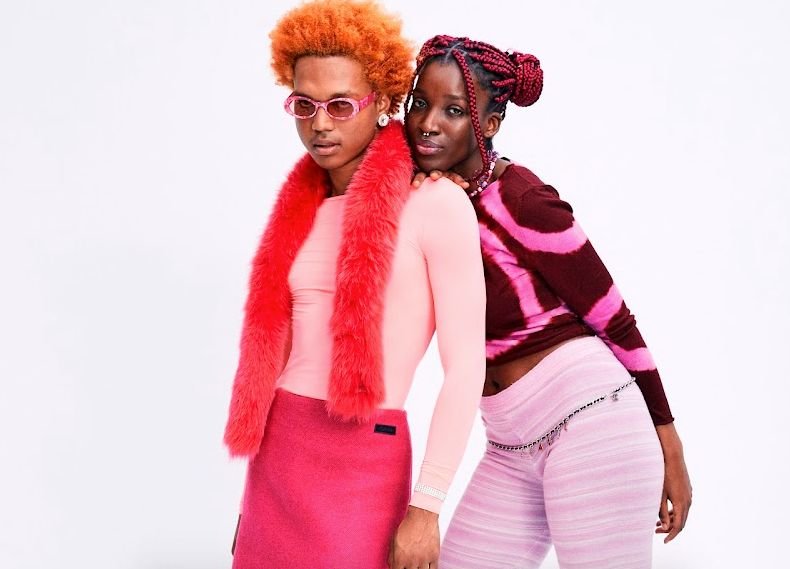
Now that spooky season is underway, we’re looking back on how second-hand September has progressed the sustainable ideals in the fashion world.
Unlike last year in which Kourtney Kardashian joined BooHoo, PLT opened their marketplace, and Shein hosted a pop-up in London, all in the same month, second-hand September 2023 proved to be slightly less controversial.
We’ll take all the small wins we can whilst striving for more positive changes to come in the future. Here’s everything we thought was noteworthy:
Zara’s parent company, Inditex, launched their Zara resell platform in France. It’s already available in the UK, enabling Zara customers to recycle old Zara clothing.
Whilst this is a good concept and allows Zara clothes to have another life rather than going to landfill, it also allows people to continue funding Zara (a very unethical business) guilt free.
When you buy from Zara’s second-hand resale platform, you’re funding an exploitative business model that is inherently unsustainable. The essence of Zara is to produce as many clothes as possible and make as much money as possible. It is unsustainable at its core.
Supporting their resale platform, even though the clothes aren’t brand new, continues to feed money into Inditex allowing them to function on a mass scale, exploiting people and the planet in the name of profit.
We need to expect more than green capitalism from companies like Inditex who have the finances to make much better changes to their business that positively impact consumers and the planet. Learn more about green capitalism here.
French government pay for clothing returns
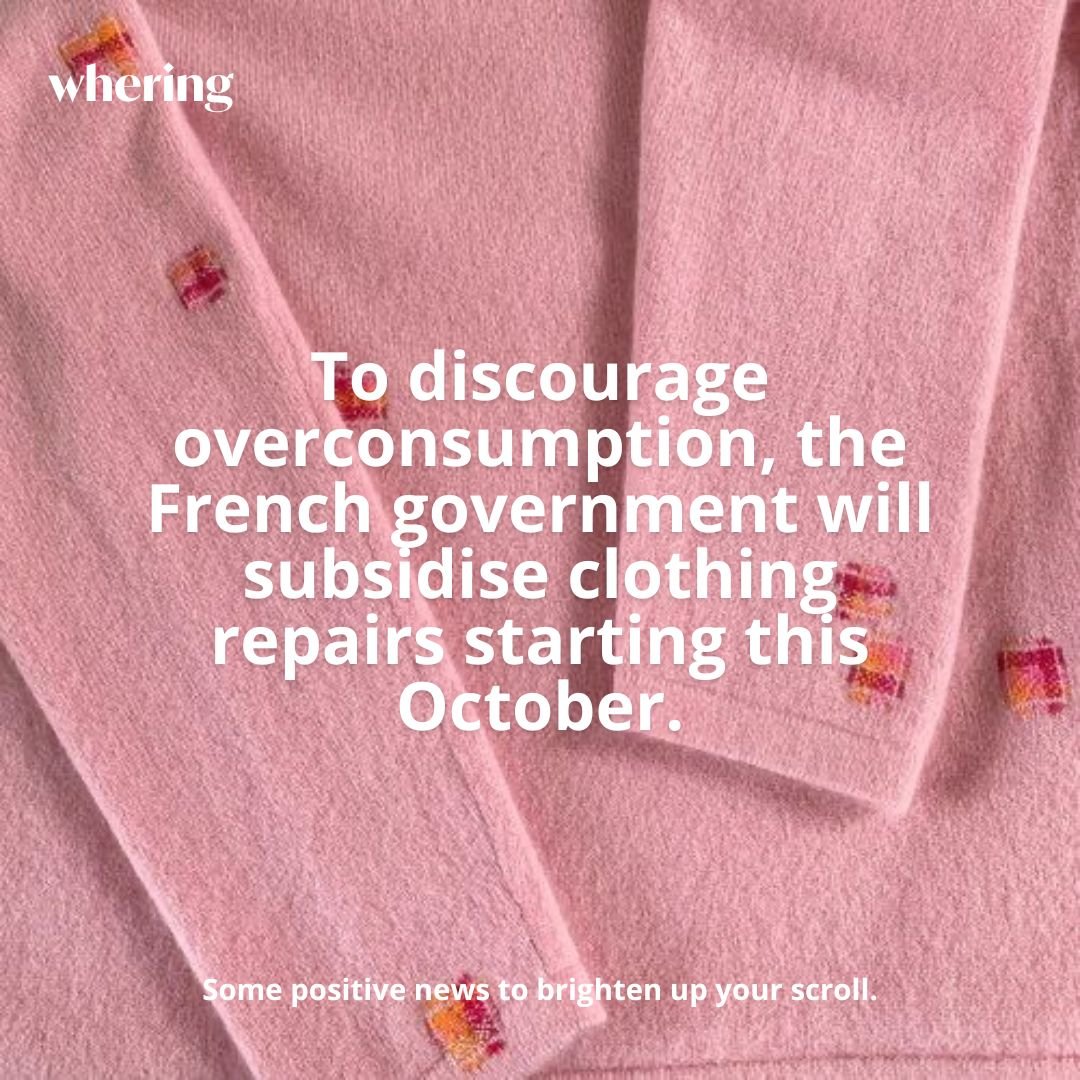
Amazingly, the French government has said they will subside all clothing alterations and repairs for French citizens. This is an incredible initiative that will make repairing and altering clothing so much more accessible for French people.
As well as this, it will reduce the need for people to consume more clothes when they know they can get something they already own mended for free. We would love to see other countries following suit, but we’re reluctant to believe Sunak will touch this concept with a barge pole after de-prioritising crucial green policies earlier this month.
Khloe Kardashian joins Fabletics, a popular activewear brand, to release a collection that ‘reflects her personal style’. At least she isn’t being bought on as a fake sustainability officer for publicity, but we still know the reason any brand brings on a big name: to drive sales.
When we hear a well known name associated with a clothing brand, even if we don’t realise it, it makes us think we need the clothes to be like that person or be someone they might approve of. Collaborations are another way we’re tricked into buying clothes, by thinking they are limited edition or more special because someone’s name is attached to it. As a result, consumption increases as we’re tricked into thinking we need something else, when we really don’t.
Alex Leach talks about this in The World is on Fire but We’re Still Buying Shoes, we would recommend reading it if you’re interested in this.
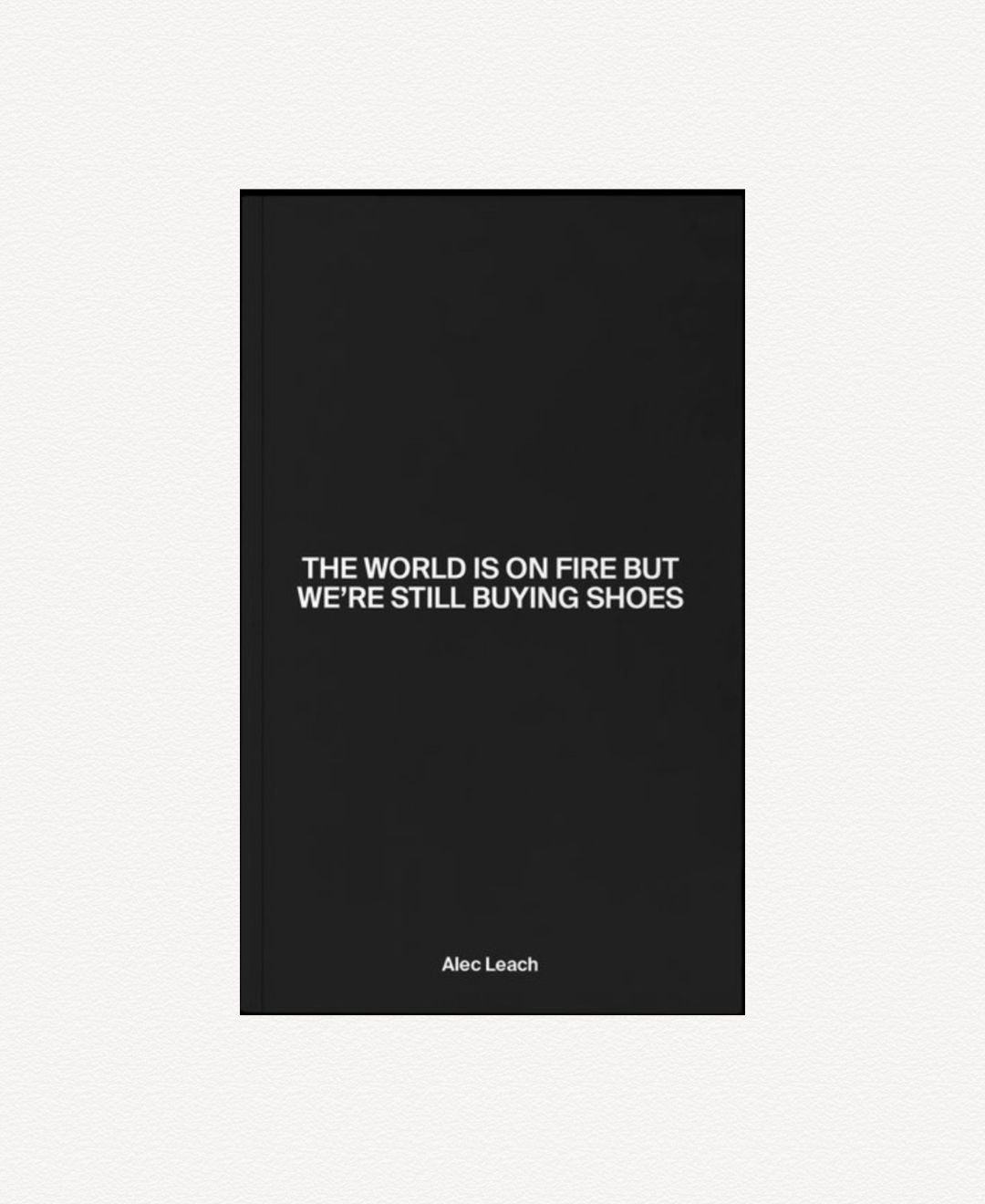
Uganda has banned Europe and the US from discarding unwanted clothing in their country that to date has led to huge amounts of textile waste ruining their land through no fault of their own.
This is a positive change that should have been actioned by Europe/the US years ago when they began to see the catastrophic impact of western consumption in Uganda and other parts of the Global South, such as Tanzania and Ghana. We continue to export clothing waste to other countries, evading responsibility.
Now that this ban is in place, Europe and the US will hopefully think more carefully about dumping their clothes in other countries, or maybe even one day stop doing it all together. We’re a long way off from this unfortunately, but this ban is a step in the right direction. Hopefully other countries in the Global South will block Europe and the US from discarding clothes to force them to think of sustainable initiatives to combat the damage of consumption.
Naomi Campbell X PLT Backlash
Since Naomi Campbell announced her partnership with PLT she has received a lot of backlash. She responded to this in her recent interview with W Magazine, stating she feels caucasian models would not receive the same reaction.
Digital product passport
The concept of a digital product passport is becoming more popular to help consumers understand where their clothes come from and hold brands to account. Fast fashion brand, Nobody’s Child, will adopt the digital passport for all their sales, helping to show their customers that they’re making an effort to be more sustainable and transparent in their production process.
We’re happy to see a mainstream fashion brand, similar to Urban Outfitters and TopShop, pave the way for other highstreet clothing brands in being more transparent about how they make/acquire their products. When we begin to start the variety of places materials come from to make our clothes, it makes it harder to disregard them without utilising them properly.
We hope other brands follow suit and commit to giving consumers the transparency they not only deserve, but that the future of sustainable fashion needs.
H&M introduce fee for returning clothes
Major clothing brand H&M has announced it will charge customers for making returns, in a bid to reduce the number of people buying multiple versions of the same item to see which one will fit them.
Free returns have increased consumption and worsened the impact of fast fashion, but H&M are only charging customers £1.99 for each return, taking it off the amount customers are refunded- so it’s hard to tell if this small fee will have a large impact.
Whilst this is a step in the right direction, it feels like H&M could be doing a lot more to reduce the impact of returns, given their wealth and influence in the industry.
LCF announce social fashion exhibition
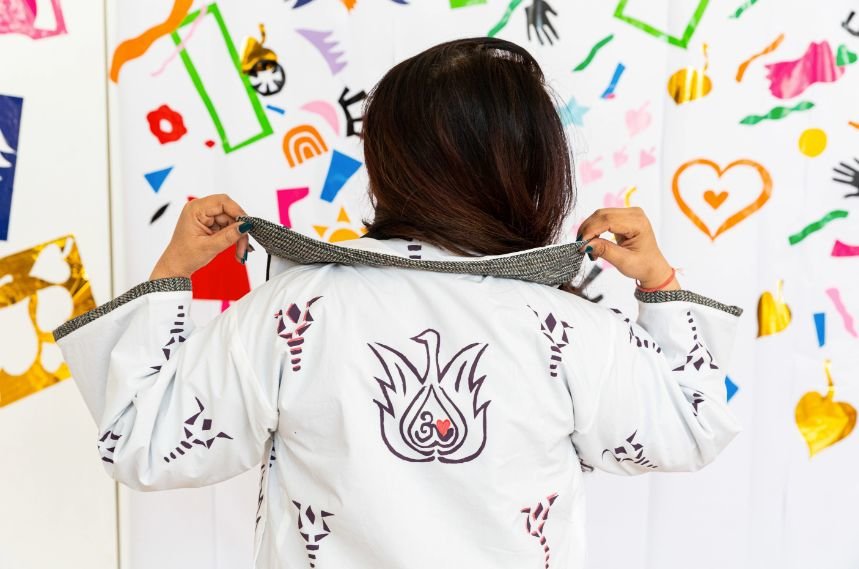
Image from UAL- 'Participant wearing garment from Making for Change's 1,000 coats project. Photography by Adam Razvi'
London College of fashion announced they will be running an exhibition starting in October ‘tracing the social impact of fashion’, highlighting how clothing can bring communities together. Understanding the social impacts of fashion helps us view our clothes as more than a disposable item we don’t need to care for, and more as something valuable that we should treat with care.
As a well known fashion university, we’re happy to see LCF continuing to make an effort to show the need to value fashion more than just a few wears.
Shein expand their pop up stores

We hate to see it, but Shein have expanded their pop-up events in the UK, as they hosted one in Manchester earlier this month- in a pink bus. After continuing to monopolise the fast fashion scene, they used a gimmick style pop-up to increase their pop-up sales. We wouldn't expect anything else from these fast fashion giants.
We’re glad that second-hand September 2023 was mainly positive, at least, more so than last year. However, we’re still hoping for more crucial changes to be made to make sustainable fashion more mainstream all year round. If we missed anything in our roundup, please feel free to get in touch with us on Instagram and Twitter to let us know.
Something on your mind?
Share your thoughts with Whering community.
If you have an idea for an article around fashion, culture, environment, news, wellness, shopping or DIY, submit a pitch to us!
